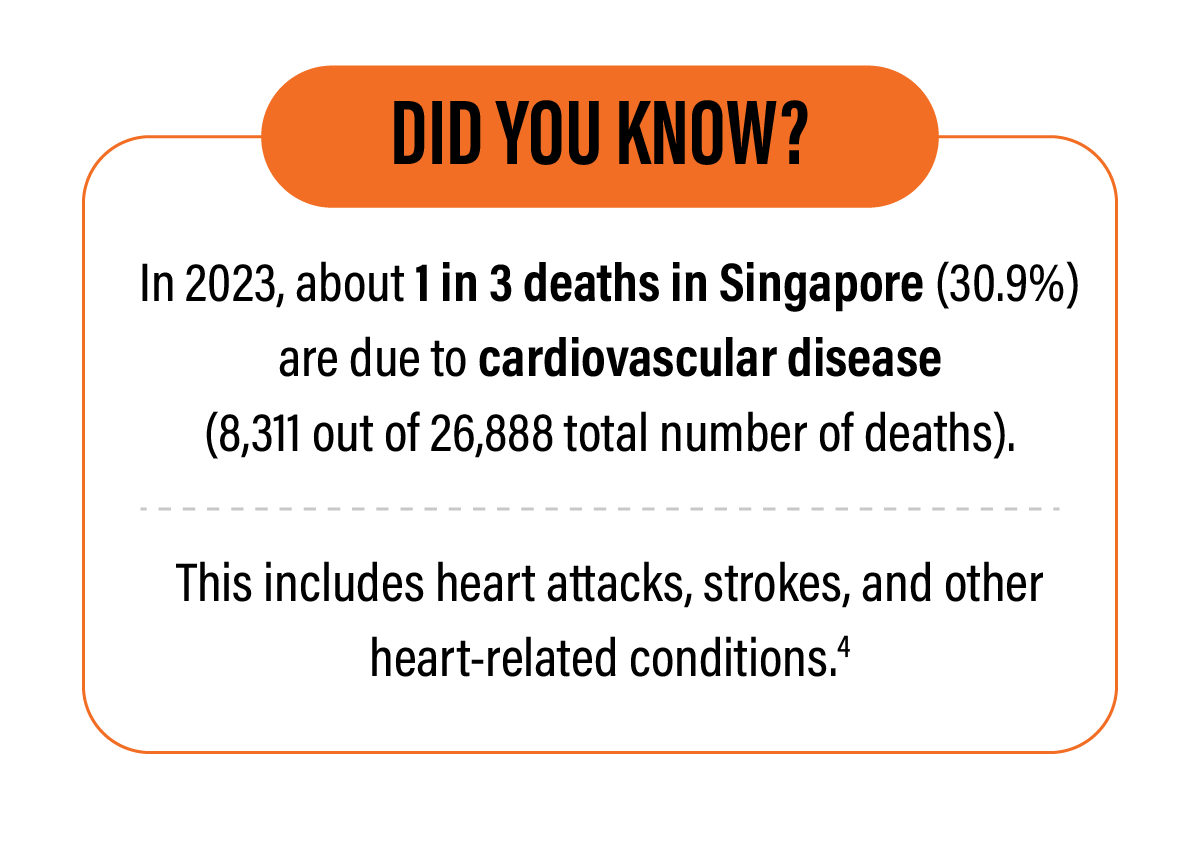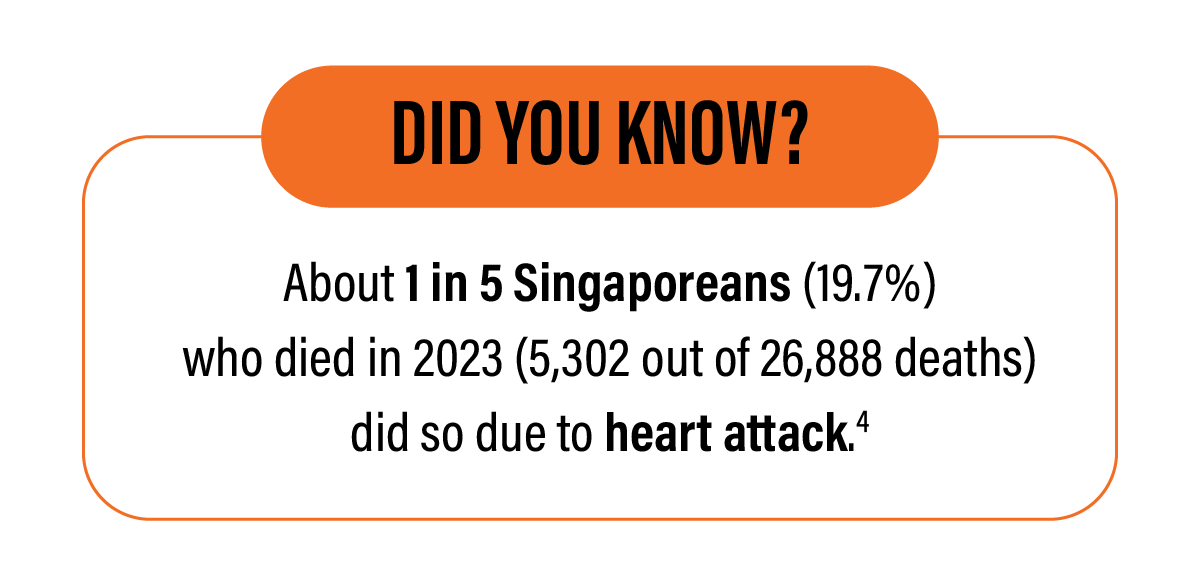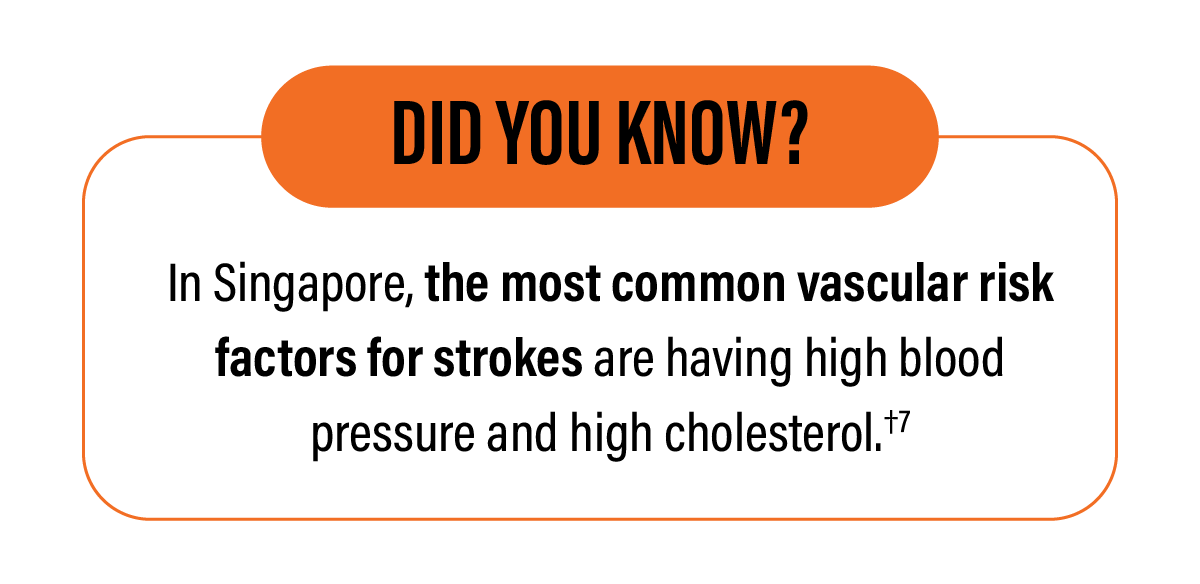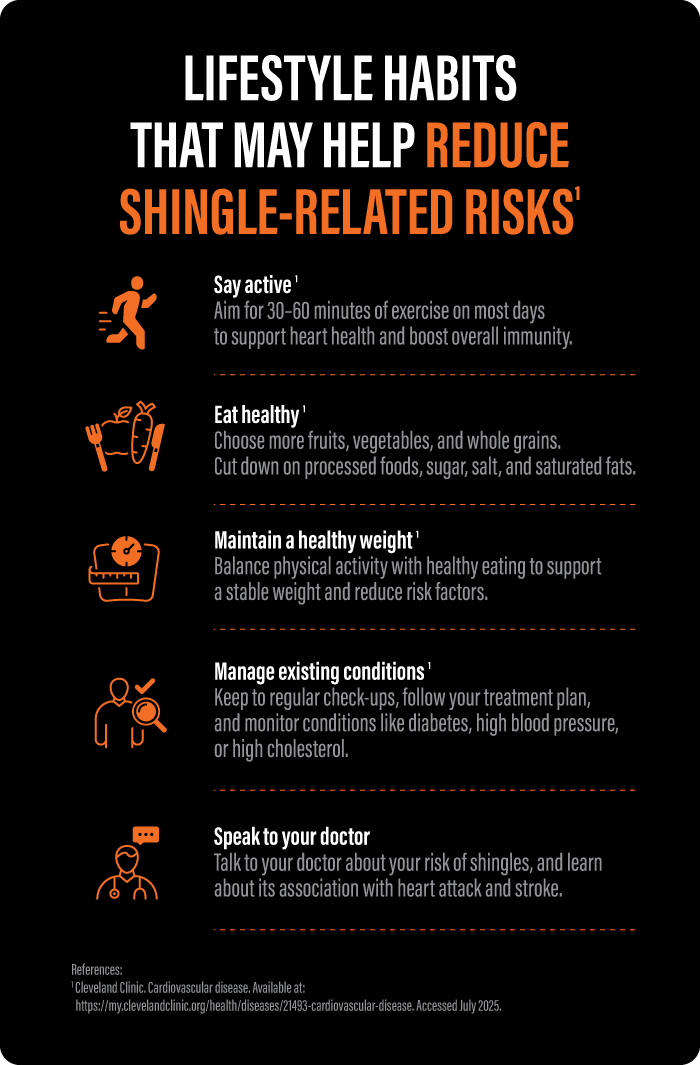Though shingles and cardiovascular diseases like heart attacks and strokes are different conditions, recent research suggests there may be a stronger connection between them than previously thought.1
Cardiovascular disease is a group of conditions that affect the heart and blood vessels.2 Though primarily known as the disease that causes heart disease or hypertension, it can also involve the blood vessels in other parts of the body, including the brain.2,3

A heart attack, or myocardial infarction, happens when blood flow to part of the heart muscle is blocked or reduced. Without oxygen, the affected part of the heart muscle becomes damaged and may begin to die. People who have had a heart attack are considered to have ischaemic heart disease.5

An ischaemic stroke occurs when the blood supply to part of the brain is disrupted. Without oxygen and nutrients, brain cells start to die within minutes. A haemorrhagic stroke, on the other hand, occurs when a blood vessel in the brain bursts or leaks, leading to bleeding in or around the brain.6

Shingles, also known as herpes zoster, is caused by the reactivation of the varicella zoster virus. It results in a painful and often itchy rash that usually appears on one side of the body or face. The rash, which takes the form of blisters typically scab within 7 to 10 days, and fully clears up within 2 to 4 weeks.8
How shingles might increase your risk of heart attack or stroke
A study concluded that shingles can increase an individual’s risk of heart attack by almost 60% and stroke by 35% compared to those who have not had shingles.*1
In this study, these risks appear to be highest within the first year after a shingles episode and may gradually decline over time.1 People who have had shingles were also more likely to have common risk factors for heart attack and stroke, such as older age, high blood pressure, diabetes, and high cholesterol.1
Although the exact cause of this link is still being studied, researchers believe shingles may affect the heart and brain through viral reactivation and replication, causing inflammation and damage to the arteries, viral spread through the nerves, increased sympathetic tone and blood pressure, and alteration of the immune response.1
Existing heart conditions raise shingles risk
While shingles can increase the risk of heart attack or stroke, the reverse is also true. People with existing cardiovascular disease have been found to have a 39%** higher risk of developing shingles.9
This increased risk may be due to changes in the immune response. In conditions like diabetes, autoimmune diseases, and even depression, the ongoing inflammation in the body can weaken cell-mediated immunity, making it harder for the body to keep the virus that causes shingles in check.9
In fact, many of the above risk factors that are seen in people who have had shingles, such as older age, high blood pressure, diabetes, and high cholesterol1,10 are also commonly present in those with cardiovascular disease.2
Managing risk through lifestyle and medical advice
Changes in food choices among Singaporeans, such as eating more processed and sugary foods, and fewer fruits and vegetables, have been linked to a rise in lifestyle-related health problems. Many adults are also consuming more calories, saturated fats, and cholesterol, while not getting enough physical activity.11
Regular exercise not only helps improve heart function and blood flow, but it also lowers the risk of conditions like high blood pressure, diabetes, and high cholesterol.12 Staying active for 30 to 60 minutes on most days and finding ways to manage stress can also make a big difference.2 Other healthy habits include avoiding tobacco products, managing chronic conditions such as diabetes and high blood pressure, maintaining a healthy weight, and choosing a diet low in saturated fats and salt.2,6
If you're over 50 years old, and are at risk of shingles, consults your healthcare professional today. They can help you understand your risk for shingles, heart attacks, and strokes.
† Data from 1165 patients diagnosed with acute stroke between 1st June 2015 and 31 December 2023 revealed that 63.5% had hypertension and 60.3% had hyperlipidaemia. Hypertension increased the risk of stroke (Odds ratio 1.70, 95% CI 1.13-2.56; p=0.011).7
* Recent studies have shown that shingles may increase the risk of heart attack by 59% (n = 46,426, myocardial infarction HR 1.59 (95% CI:1.27 – 2.01), p Value < 0.001) and stroke by 35% (n = 46,426, stroke HR 1.35 (95% CI: 1.18-1.54), p Value < 0.001).1
**The systemic review and meta-analysis of 11 studies showed that cardiovascular disorders resulted in an odds ratio (the odds of being a risk) of 1.39 with a 95% confidence interval 1.12-1.73.9



